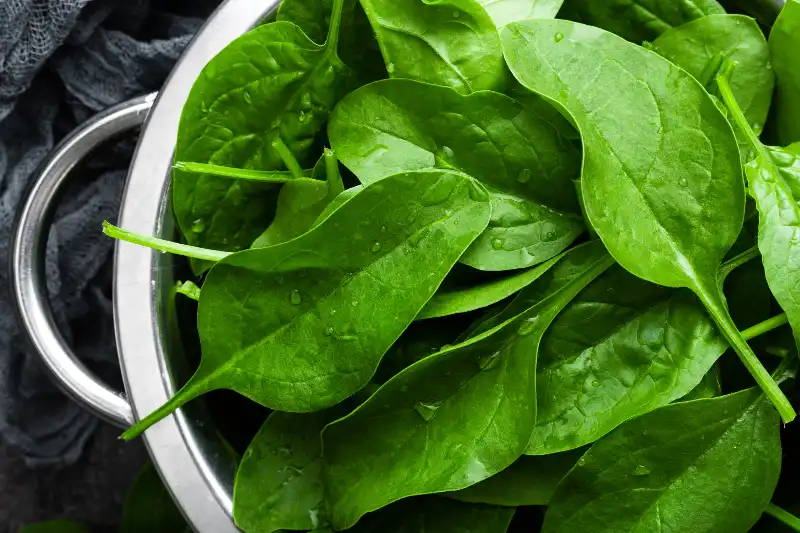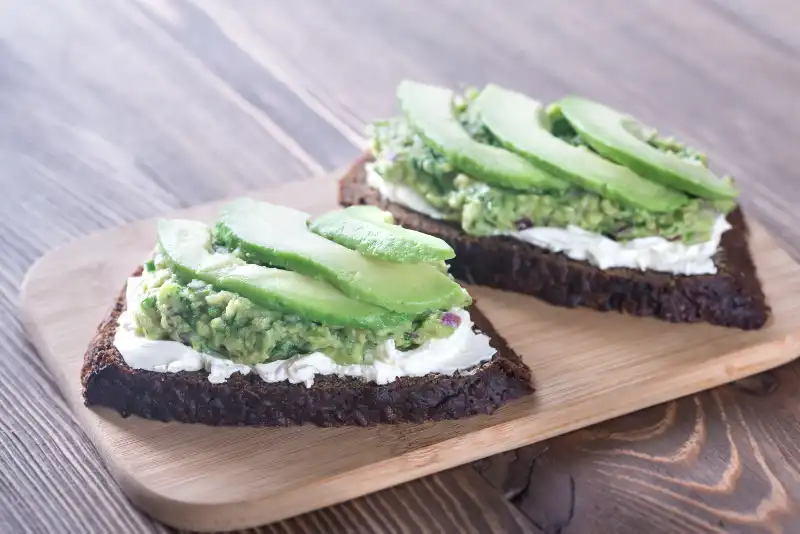Junk foods are far and wide. They can be seen in rest shops, vending machines, hotels, or stadiums. They are even sold in bookstores, movie theatres, or gas stations. Also, there are non-stop advertising agencies seen promoting these junk foods on television. Junk foods are rich in calories and low in nutritional value. Generally, these food items can be processed or prepared snack food products with long, frequently unsayable constituent lists. Intake of too many sugars and fats present in these foods might add to weight gain. This excess weight is then related to diabetes. Being obese is one of the major developing factors for type 2 diabetes. Read to this blog to know “Does Junk food cause diabetes?”
When a person carries too much fat tissue, particularly around the midsection, the person’s body’s cells might become resistant to insulin. Insulin is the hormone responsible for the movement of glucose out of the blood and into the body cells.
When the body cells lack the ability to utilize insulin properly, the pancreas mistakes this as a requirement for more insulin, hence it starts pumping out more. Ultimately, the pancreas would get worn out and stop producing an adequate amount of insulin to keep the levels of blood glucose controlled. This develops diabetes, a condition marked by high blood glucose levels.
Junk foods are usually processed and are found to be rich in calories. They are expected to contain few vitamins and minerals and contain less fibre. Junk foods also often comprise huge quantities of extra sugar and contain high amounts of saturated fats as well as trans fats. This might cause them to digest more rapidly, which might raise the levels of blood glucose and enhance the levels of bad cholesterol.
Also Read: Link between sleep apnea and diabetes
Possible Effects of Junk Food
Junk food items might add to diabetes in the following ways:
- Fast effect on blood glucose levels: Highly processed food items that contain calories and low levels of vitamins, minerals, and fibre get broken down rapidly in the body and might result in a quick spike in the glucose levels.
- Weight gain: Because of its poor nutritional qualities as well as its capacity to promote overeating, individuals who consume junk food might gain weight. Too much weight, as well as body fat, are significant risk factors of type 2 diabetes, which results in 90 to 95% of all diabetic cases.
- Unsuitable portion size: Junk foods are generally not very filling as well as are available in large portion sizes. Both these factors might result in individuals overeating junk foods. This might also exert a negative impact on diabetes, such as blood glucose spikes and weight gain.
- Triglyceride levels. Junk foods contain high amounts of trans and saturated fats, which might elevate the levels of triglycerides, fat exists in the blood. High triglyceride levels enhance the risk of type 2 diabetes.
- High blood pressure. Junk food contains a high amount of sodium (salt), which adds to high blood pressure. High blood pressure is also associated with an increased risk of type 2 diabetes.
As per a recent study, consumption of junk foods on a regular basis might bring about as much damage to the kidneys of non-diabetic people as it does to those with the disease itself. Junk food might also result in high blood glucose levels like those experienced by individuals having type 2 diabetes. As diabetics are already at a greater risk of a renal problems, diets comprising a load of junk foods might be particularly problematic.
Saturated and Trans fats
According to the American Diabetes Association (ADA), saturated fat raises your cholesterol level. This puts you at a greater risk for heart disease, heart attack, and stroke. The ADA recommends people get less than 10 percent of their calories from saturated fats. Trans fat also increases your cholesterol level. It’s even worse than saturated fat because it raises bad cholesterol levels and lowers good cholesterol levels. Trans fat is liquid oil that has solidified, also called hydrogenated fat. It can be tricky to spot because food producers can list 0 grams of trans fat on labels if there is less than 0.5 grams in the product.
Avoiding Junk food
For diabetic people, it is significant to restrict sugars and fats present in junk food. This aids in maintaining weight and blood glucose levels well-controlled. The ADA recommends restricting these foods as they generally replace other more nutritious foods in the body. It might be as tough to break a junk food routine as a majority of other bad habits. Although, a person might avoid foods packed with sugars and fats, including cakes and fried dishes, fats and sugars might lurk in foods where the person least expects them. Tortilla chips, croissants, cream, noodles, muffins might be as rich in simple sugars and comprise damaging fats. Sugar also is present in flavored yogurt and condiments such as mayonnaise, ketchup, or salad dressings. It can also be found in high amounts in few fat free foods, because it can be used as a substitute for fat.
Also Read: Breakfast Ideas For Diabetics
Good Alternatives to Junk Food for People With Diabetes
Leafy Greens
Including fresh as well as succulent greens in one’s daily meals might be an excellent addition. Leafy greens contain high doses of vitamins, minerals, as well as fibre, intake of green veggies aids in lowering down obesity and the risk of cardiovascular ailments. A person might cook these green veggies for lunch or dinner or prepare a fresh leafy salad to begin the day. Also, a person can take these leaves in the form of juice.
Avocado
One of the coolest superfoods nowadays, avocados contain rich amounts of Folate, Vitamin B2, Vitamin B3, Magnesium, Potassium, Vitamin C, and more. Intake of an avocado every day might result in an increase in HDL (protective cholesterol), which consequently lowers the possibility of heart diseases. A person can mash an avocado and top it over a toast, or scatter some salt and pepper over a diced avocado and then consume it similar to fruit, or add it to soups and salads.
Chia Seeds
These small black seeds are a nutritional powerhouse and are packed with omega-3 fatty acids, iron, calcium, antioxidants, and fiber. The Omega-3 fatty acids aid in enhancing the HDL cholesterol, which guards the body against heart attack and stroke. The suggested dosage of chia seeds for a day is 20 grams or 1.5 tablespoons. A person might take it like a snack, or include them as a topping to the salads. Also, these can be added in smoothies or porridge.
Nuts
Nuts such as walnuts, pistachios, almonds, hazelnuts must make way to a person’s daily diet if a person is diabetic. Regular intake of these nuts might aid in lessening inflammation and reduce the glucose level. Also, it might result in lower production of HbA1c and LDL, bad cholesterol in the body. A handful of assorted nuts might be taken as snacks between the meals. Also, these can be added in salads.
Beans
These are diabetic-friendly food as they are rich in fiber. Beans such as kidney beans, pinto beans, garbanzo beans, and black beans aid in regulating blood sugar. They are better as compared to other starch packed food products as they have a lower glycemic index. A person can use kidney beans as a filling in tacos, or cook it as well as consume with rice. Also, a person can make a salad by mixing a range of beans and topping it using lemon, chili, and salt.
Fatty Fish
Fatty fishes such as herring, anchovies, salmon, sardines, and mackerel are great sources of omega-3 fatty acids; namely, DHA and EPA which aid to maintain heart health. They help in lowering inflammation in the body as well as forms a defensive layer for the cells lining the blood vessels. As fatty fish aids in controlling glucose levels, it ultimately lowers the chances of heart attacks and strokes.
Greek Yogurt
When the topic of dairy products comes, greek yogurt is the finest choice for diabetic patients for the reason that it improves the blood glucose control. It is comprised of probiotics helping to lower down the chances of heart problems. Intake of greek yogurt also enhances insulin resistance, thus making the body sturdier to fight the problem. It also contains huge amounts of calcium, protein, as well as conjugated linolic acid (CLA), which is a fat that aids in reducing appetite. A person can eat a bowl of yogurt with regular meals, or use it in the form of a dressing in salads. Dash in few fruits (diabetic friendly) into bowl of yogurt as well as consume it as one of meals of the day or as a dessert.
Peanut Butter
Astonishingly enough, peanut butter might be taken by diabetic patients but in moderation and of particular brands. Peanut butter contains nutrients, protein and fiber and low carbs. It is completely gluten-free, and vegan. It contains zero trans fat and is also GMO-free. A person can take peanut butter directly from the jar, or as a spread over a bread toast, or add a tablespoon to smoothies.
Tips to Control High Blood Sugar
A lot of other healthier alternatives to junk food help in fighting off the diabetes and also serves as a tasty food in one’s regular meals. You can check out our site: Breathe Well-Being for all the updates regarding diet, nutrition for diabetic patients. And you can also get expert consultation from our expert health coaches right from the comfort of you homes!!
So, in nutshell, the glucose levels and diabetes can be controlled by eating:
- whole unprocessed carbs such as vegetables, fruits, and whole high fibre grains
- a managed amount of carbs
- foods that are low in sodium
- a sufficient amount of protein
- foods that are low in saturated and trans fat
In addition, having smaller meals rather than three large meals a day helps a person manage hunger in a better way. Getting enough exercise also helps in lowering the levels of blood sugar.
Also, a food journal can be kept handy to note when a person consumes and how much. This would help a person see if:
- he or she is overeating or stress-eating
- they have any other bad eating habits
- he or she consumes particular junk food often
Summary
Considering how inescapable junk food is in countries like India, it can be difficult to resist. Individuals having diabetes must pay special attention to their diets to regulate their weight and eventually their blood glucose level. Resisting the wish to eat too much junk food might be even more interesting. A person must limit junk food as well as opt for healthy alternatives whenever possible. This is perfect not just for diabetics, but also for overall health.
FAQs:
How does junk food have an effect on your digestive system?
Junk food is unwholesome for gut as they delay the digestion process making the stomach swollen. So as to digest food, stomach requires enzymes and fast food does not have them.
What can I do after having junk food?
It is always good to have lots of water minimum 2 litres or more, rehydrating the body after intake of high-salt and high-sugar foods is must. Keep your body well-hydrated, particularly after a binge, as water helps in digestion and lowers down bloating.
How many times every week is it safe to have junk food?
You can have junk foods at least once a week, and you do not have to give up junk food totally. Consumption of fast food once a week makes sure that you are capable of giving your body what it requires without damaging it, and also it aids in improving metabolism by making your body burn a large number of calories.
What occurs if I eat junk food everyday?
Consumption of junk food regularly might cause an increased risk of obesity as well as chronic health problems such as heart disorder, type 2 diabetes, non-alcoholic fatty liver disease as well as some cancers.
References:
- https://www.healthline.com/health/type-2-diabetes/junk-food
- https://www.medicalnewstoday.com/articles/317122
- https://www.diabetes.co.uk/food/fast-food-and-diabetes.html
Last Updated on by Dr. Damanjit Duggal
Disclaimer
This site provides educational content; however, it is not a substitute for professional medical guidance. Readers should consult their healthcare professional for personalised guidance. We work hard to provide accurate and helpful information. Your well-being is important to us, and we value your feedback. To learn more, visit our editorial policy page for details on our content guidelines and the content creation process.

 English
English




















